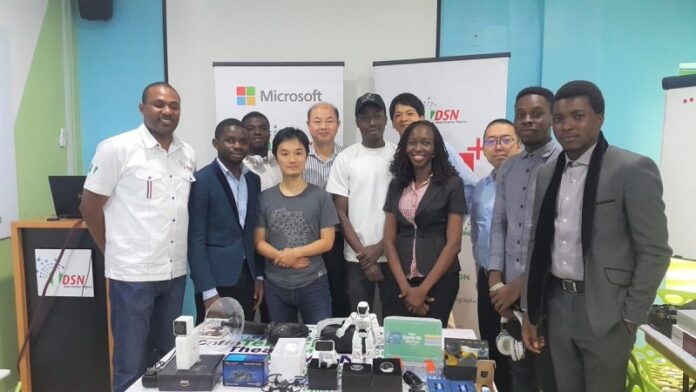The government of Japan, in collaboration with local partners, is spearheading an ambitious initiative to transform a Kenyan university into a leading regional hub for science, technology, and innovation (STI) across Africa. This groundbreaking project, known as AFRICA-ai-JAPAN, launched in June 2020 and is facilitated by the Japan International Cooperation Agency (JICA). With a focus on sectors crucial to Africa’s development, such as agriculture, engineering, and information and communications technology (ICT), the initiative aims to leverage indigenous knowledge and resources to address the continent’s pressing challenges.
One of the key objectives of the project is to enhance the capacity of partner institutions, particularly the Jomo Kenyatta University of Agriculture and Technology (JKUAT) and the Pan African University Institute for Basic Sciences, Technology and Innovation (PAUSTI), hosted by JKUAT. By empowering students to innovate and fostering collaboration with industry, the initiative seeks to drive impactful research and development activities.
The project is not confined to Kenya alone but extends its reach across the African continent. Collaborations are being established with universities in 10 African countries, including Uganda, Botswana, South Africa, Rwanda, Tanzania, Malawi, Zambia, Zimbabwe, Egypt, and South Sudan. Through these partnerships, the aim is to enhance skills and promote scientific research for the benefit of Africa as a whole.
A significant aspect highlighted by Dr. Beatrice Inyangala, Kenya’s Principal Secretary for Higher Education and Research, is the emphasis on South-to-South linkages between African institutions. This approach fosters robust partnerships that transcend borders, laying the groundwork for collaboration on various shared interests. The recent Regional Linkages workshop served as a platform for representatives from the 10 countries to exchange ideas and explore avenues for cooperation.
The impact of the AFRICA-ai-JAPAN project is already tangible, with 42 research and innovation projects funded to date. These initiatives have not only enhanced infrastructure and learning facilities at JKUAT but have also contributed to the development of a skilled workforce in STI across Africa. Additionally, the project aligns with Kenya’s efforts to increase research funding, aiming to reach the globally recommended rate of 2% of GDP.
JKUAT has emerged as a frontrunner in educational and research excellence, thanks to its partnership with JICA. Through outreach activities and collaborations with universities across East and Southern Africa, JKUAT is fostering mutual collaboration, particularly in agriculture, engineering, and ICT – areas crucial for Africa’s sustainable development.
The commitment of the Japanese government, channeled through JICA, underscores its dedication to the project’s objectives. These objectives, focused on capacity-building, research support, industry dissemination, and network building, are pivotal for driving innovation and technology adoption across Africa.
Moving forward, the initiative aims to tailor curricula to address regional challenges and establish joint grant application platforms to tackle sustainability issues. By harnessing research and innovation, particularly in agriculture and engineering, the AFRICA-ai-JAPAN project has the potential to propel Africa towards a brighter and more prosperous future.
In summary, the collaboration between Japan, represented by JICA, and African institutions like JKUAT and PAUSTI, signifies a transformative effort to advance science, technology, and innovation across the continent. Through strategic partnerships and targeted initiatives, the project aims to address Africa’s development challenges and foster sustainable growth and prosperity.
















 The African Research (AR) Index is a comprehensive scholarly directory and database focused explicitly on journal publishers that publish and disseminate African research.
The African Research (AR) Index is a comprehensive scholarly directory and database focused explicitly on journal publishers that publish and disseminate African research.

